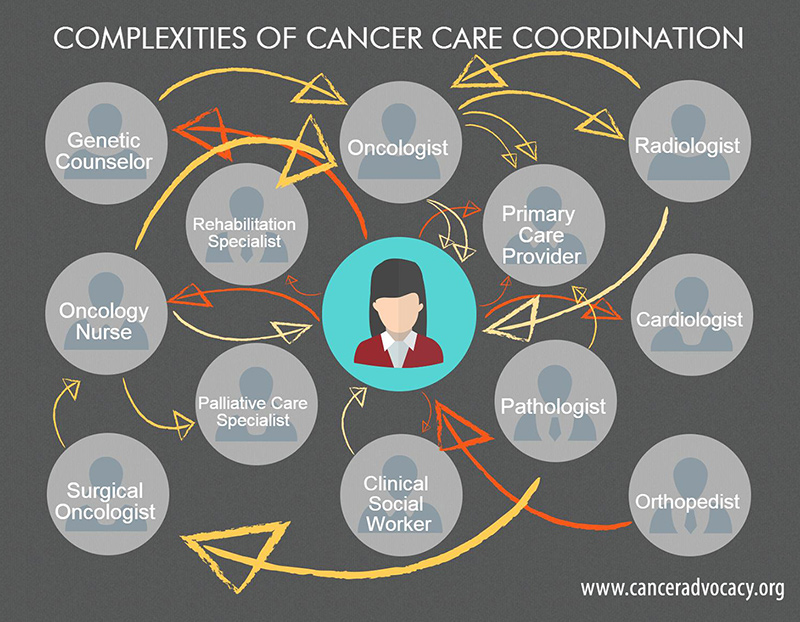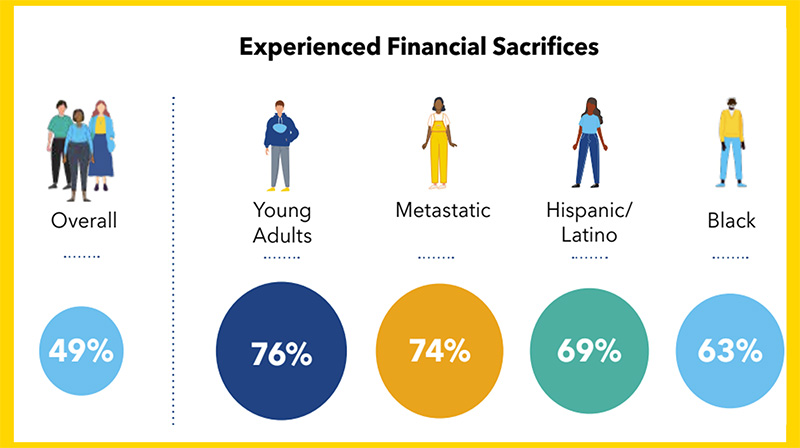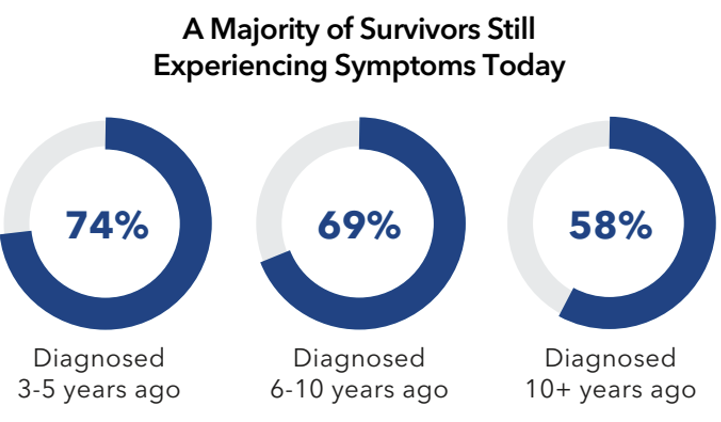Your generous year-end donation will be matched $1 for $1 DONATE
Comprehensive Cancer Survivorship Act (CCSA)
H.R. 4363/S. 2213, the Comprehensive Cancer Survivorship Act (CCSA), is bipartisan legislation first introduced in December 2022 and reintroduced in June 2023 by Representatives Debbie Wasserman Schultz (D-FL-25), Brian Fitzpatrick (R-PA-1), and Mark DeSaulnier (D-CA-10) and Senators Amy Klobuchar (D-MN) and Ben Cardin (D-MD). This legislation addresses the entire continuum of care – from diagnosis to active treatment and post-treatment – to improve survivorship, treatment, and transition for all survivors.
The cancer journey does not end once active treatment ends, and survivors need lifelong support for their disease. To improve their quality of life and health outcomes, cancer survivors need resources to help monitor for these secondary cancers and late and long-term effects caused by their cancer treatment. Additionally, health care providers need resources to provide appropriate care for survivors throughout the entire continuum of care. The CCSA addresses the existing gaps in survivorship care and aims to improve quality of care and navigation of health care systems for survivors, their loved ones, and their health care providers.
What Does the CCSA Do?
This comprehensive legislation will provide coverage for care planning services to address transition to primary care; develop navigation services for survivorship; establish employment assistance grants for survivors, caregivers, and their families; provide education and awareness through resources for survivors and health care providers; ensure coverage for fertility preservation services; and require study of the existing reimbursement landscape and development of an alternative payment model, among many other things. Read more details about each in the section-by-section breakdown.
Notably, the bill includes the three following priorities:
Cancer care planning and communication:  Creates a Medicare service and payment for cancer care planning and coordination services to help improve cancer survivors’ coordination of care and transition to primary care.
Creates a Medicare service and payment for cancer care planning and coordination services to help improve cancer survivors’ coordination of care and transition to primary care.
- It helps promote shared decision-making between patients and their cancer care teams so patients are not left in the dark.
- It empowers patients with the information necessary to help manage and coordinate their care and allows providers to deliver the proper care at the right time, better coordinate a patient’s care, and use resources effectively.

Data Source: 2022 State of Survivorship Survey
Employment assistance program: Establishes a grant program to provide education and targeted assistance to cancer survivors, their families, and caregivers experiencing barriers to employment due to a cancer diagnosis.
- Many survivors experience financial toxicity because of lost wages and out-of-pocket costs associated with parking and travel for doctor appointments.
- The bill provides targeted assistance like career and training services and transportation, financial, and psychosocial support, which can help cancer survivors facing employment challenges remain employed and financially stable.

Data Source: 2022 State of Survivorship Survey
Adult cancer survivorship study: Requires an analysis assessing the benefits of creating an adult version of the Childhood Cancer Survivor Study, which would collect information about late and long-term effects of cancer.
- This would help us better understand these effects and improve treatments and interventions to increase survival, minimize harmful health effects, and improve survivors’ quality of life.
CCSA Resources
CCSA Fact Sheet
This fact sheet summarizes the need for the CCSA and highlights some of the most important provisions.
CCSA Fact Sheet
CCSA Full Bill Text
The full bill text of the CCSA is available to read on Congress.gov.
CCSA: Detailed Summary
Learn details about each of the provisions in the Comprehensive Cancer Survivorship Act in the Section-by-Section Summary below. Download this summary as a PDF here.
CCSA Section-by-Section Breakdown
The legislation includes the following provisions:
- Coverage of cancer care planning and coordination services: Establishes a Medicare service and payment for cancer care planning and coordination services to help improve care coordination and cancer survivors’ transition to primary care.
- Survivorship transition tools: Requires the evaluation and publication of information resources for cancer patients and providers for consolidating treatment history and survivorship guidelines into a personalized survivorship care plan to guide follow-up care.
- Alternative payment model: Requires the US Department of Health and Human Services (HHS) to conduct a study and submit a report outlining an alternative payment model for payment for items and services relating to survivorship care.
- Survivorship navigation: Requires review of navigation programs and submission of a report assessing how navigation programs can best be developed across the continuum of care. HHS must also conduct a demonstration program, awarding grants to eligible entities to provide navigation services to cancer survivors.
- Survivorship care demonstration program: Requires HHS to conduct a demonstration program aimed at improving the quality of cancer survivorship care, in which grants will be awarded to diverse demonstration sites and a variety of survivorship care strategies can be evaluated.
- Cancer survivor employment assistance grants: Requires the development of a grant program for eligible entities to provide education and targeted assistance, such as transportation, nutritional, and financial assistance, to cancer survivors and their families and caregivers who experience workforce challenges.
- Comprehensive cancer survivorship program: Requires HHS to carry out a comprehensive cancer survivorship program that includes a cancer survivorship resource center to provide evidence-based resources to cancer survivors, a health care professional resource center to assist and educate health care professionals in the delivery of high-quality survivorship care, an educational campaign to provide health care professionals with resources to improve cancer survivorship care, and a program of supportive care services to improve survivors’ quality of life and long-term survivorship.
- Adult cancer survivorship study: Requires HHS to complete an analysis assessing the creation of an adult version of the Childhood Cancer Survivor Study and the associated financial costs, as well as identifying data sources and gaps and strategies to publish data in a manner accessible to survivors, providers, researchers, and the public.
- Survivorship progress report: Requires a study of the progress made in cancer survivorship over the last 50 years.
- Promoting state innovations to ease transitions to the primary care setting for children with cancer: Requires HHS to convene a group of stakeholders representing childhood/adolescent cancer survivors to develop best practices for states to ease the transition of children and adolescents with cancer from active treatment to primary care and ensure development and delivery of survivorship care plans to these survivors.
- Childhood cancer demonstration model and standard of care: Creates a new Medicaid pediatric survivorship care demonstration model the Center for Medicare and Medicaid Innovation is encouraged to implement, which would promote a standard of care to manage the transition of children from active treatment to primary care through promotion and use of survivorship care plans.
- Medicaid coverage of fertility preservation services: Ensures Medicaid coverage of fertility preservation services for individuals diagnosed with cancer who undergo treatment that may lead to iatrogenic infertility.
Comprehensive Cancer Survivorship Act (CCSA) Training
This presentation gives you more background about the Comprehensive Cancer Survivorship Act. Learn about the bill’s champions and how the provisions in the bill will help cancer survivors.
Running time: 20:56
Video Chapters
00:00 Bill Background
01:46 What’s in the CCSA?
05:23 Cancer Care Planning
08:01 Employment Assistance
10:59 Adult Cancer Survivorship Study
12:42 Conducting the Meeting
Take Action
Meet With Members of Congress at Home During August Recess
Members of Congress are back in their home districts during the month of August. This is a great time to meet with representatives and senators because they are not as busy and want to make sure their constituents are happy.
NCCS created a step-by-step video to walk you through the process of setting up meetings with your legislators while they are at home during recess.
Running time: 12:02
Video Chapters
00:00 What’s in the CCSA?
05:08 How You Can Help – August Recess
09:17 CCSA Resources and Meeting Followup
Resources mentioned in the video:
Post-Meeting Followup: Staffer Thank-You Email Template
Dear ________________,
Thank you for taking the time to speak with me about H.R. 4363/S. 2213, the Comprehensive Cancer Survivorship Act (CCSA). As I mentioned, this bipartisan legislation addresses the health of cancer survivors throughout the entire continuum of care – from diagnosis to active treatment and post-treatment – to improve survivorship, treatment, and transition for all cancer survivors. [INCLUDE PERSONAL EXPERIENCE AND HOW THE CCSA COULD HAVE OR WOULD HELP YOU.]
I truly appreciate you taking the time to discuss this important piece of legislation that would help cancer survivors like myself. I hope your boss will consider supporting this bill. If you have any questions about the CCSA, please contact Haley Smoot at hsmoot@canceradvocacy.org.
Best,
___________
Write or Call Your Members of Congress
Write Your Members of Congress
- Find your Member’s website at one of the links above.
- On their website, they should have a “contact” or “email” section.
- Use the sample script below for your message. Feel free to add your own experience or story to the message.
- Email us at hsmoot@canceradvocacy.org to let us know which office(s) you contacted!
Call Your Members of Congress
- Call the Capitol Switchboard at (202) 224-3121 and ask for the Member of Congress you wish to reach.
- When the office answers, ask if you can speak to a staff member who covers health issues.
- Tell them you are calling to ask your Representative/Senator to cosponsor H.R. 4363/S. 2213. Use the sample script below for help.
- Email us at hsmoot@canceradvocacy.org to let us know which office(s) you contacted!
Sample Script
Hello,
I am a survivor/caregiver/advocate from _______. I am calling to ask that Representative/Senator _______ support the Comprehensive Cancer Survivorship Act, H.R. 4363/S. 2213. The CCSA addresses the health of cancer survivors throughout the entire continuum of care – from diagnosis to active treatment and post-treatment – to improve survivorship, treatment, and transition for all cancer survivors.
[As a cancer survivor/caregiver myself,] I know that the cancer journey does not end once active treatment ends, and survivors need lifelong support. [INCLUDE PERSONAL CANCER EXPERIENCE AND HOW THE CCSA WOULD HELP YOU.]
[Examples: “My cancer care experience could have been better if I had access to cancer care planning and coordination services. Without these services, I struggled to coordinate my care between multiple doctors and often felt lost in the process.” OR “Today, I’m a cancer survivor who is grateful for the care and treatment I received, but I know there’s much to be learned about late and long-term effects. An adult cancer survivorship study would provide important data and insights to help survivors and their health care providers make informed decisions about their care. By supporting this study, we can help ensure that future survivors have access to the best possible care.”]
I hope that your boss will support H.R. 4363/S. 2213, the Comprehensive Cancer Survivorship Act. Thank you for your time and consideration.
More Resources
How to Tell Your Story
This short Telling Your Story presentation that walks you through how to use the Telling Your Story worksheet to hone your story for Hill meetings. Since you don’t have much time in these meetings and may be paired with other advocates, it’s best to keep your story under 2 minutes.
Please complete the worksheet and bring it with you to the Symposium. During the Hill Day Prep session, you’ll have the opportunity to share it.
Running time: 6:23
Telling Your Story Slide Deck (PDF)Hill Meetings 101
Watch our Hill Meetings 101 presentation for more information about what you can expect in your Hill meetings, including dos and don’ts for meetings, how meetings are typically structured, what to do after a meeting (e.g. tweet your legislator, send a thank-you email, etc.), and how to stay involved with your members of Congress when you return home.
Running time: 12:08
Video Chapters
00:00 Congress Basics
04:23 Do’s and Don’ts For Hill Meetings
08:38 The Meeting
10:18 Maintaining Relationships
Media Training Webinar
Drawing on his experience as a regional media advocacy director for the nation’s largest cancer nonprofit organization, as well as his current work as a volunteer for several organizations, Michael shares examples and best practices for working with and building relationships with the media.
In this webinar, you will learn how to make initial pitches to members of the media, get tips and tricks for getting coverage of events, and how to be prepared to share your story. Michael will also offer advice on the dos and do nots of media interviews and discuss the power of letters to the editor and op/eds for “giving legs” to advocates’ messages.
Press Release Template (Word Doc) – A template press release that you can personalize and share with your local TV media in your community about your Hill meetings with Members of Congress.
Example Advocate Press Release (Word Doc)
